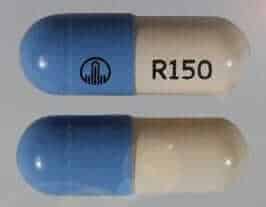
Recalls are actions taken by a firm to remove a product from the market, or a correction is made to the product because it is either defective or potentially harmful. Recalls may be conducted on a firm’s own initiative, by FDA request, or by FDA order under statutory authority. Sometimes a company discovers a problem and issues a product recall on its own. Other times a company issues a product recall after FDA raises concerns.
What Should I Do if an FDA Recall Is Issued for One of My Medications?
If you have a medicine that has been recalled, talk to your health care professional about the best course of action. Stores generally have a return and refund policy when a company has announced a recall of its products.
If you or someone you love has used one of the following prescription drugs or medical devices, please contact the class action attorneys at Morris Bart, LLC Attorneys at Law for a free case evaluation:
- Plavix
- Pradaxa
- Byetta
- Januvia
- Victoza
- Fresenius Dialysis
- Infuse
- Transvaginal Mesh
- Mirena Intra-Uterine Device
For a free legal consultation, call 800-537-8185
FDA Recalls for Prescription Drugs and Over-the-Counter Drugs in 2012
The following statistics were compiled from the Food and Drug Administration (FDA) and the Consumer Product Safety Commission (CPSC) websites. It details the pharmaceutical recalls that were issued in 2012 by quarter.
In the first quarter of 2012 the FDA Enforcement Reports documented 69 pharmaceutical recalls. This was the lowest level in the past five quarters.
The number of recalls documented in the first quarter decreased by 29% compared to the previous quarter and by 28% compared to the same quarter in 2011. Of the 69 pharmaceutical recalls, 14 affected over-the-counter (OTC) drugs while the other 55 affected prescription drugs.
In the second quarter of 2012, the FDA Enforcement Reports documented 69 pharmaceutical recalls- matching the first quarter’s record low. There are three designations for recalls. A Class I recall is for products that have a high probability of causing severe adverse health effects if used.
A Class II recall is for products that could cause temporary adverse health effects. A Class III recall is for products that are not likely to cause adverse health effects but still violate FDA regulations. Across these three designations (Class I, Class II, and Class III), eleven of the 69 recalls affected OTC drugs while the other 55 recalls affected prescription medications. Six recalls were designated as Class I; 45 recalls were designated as Class II; and sixteen recalls were designated as Class III.
In the third quarter of 2012, the FDA Enforcement Reports documented 165 pharmaceutical recalls, doubling the number of recalls from the first two quarters of the year. Two of the 165 recalls affected OTC medications while the other 163 affected prescription medications. Four recalls were designated as Class I; 133 recalls were designated as Class II; and 28 recalls were designated as Class III. 80% of the recalls in the third quarter were Class II recalls. The two OTC recalls were designated Class III.
In the fourth and final quarter of 2012, the FDA Enforcement Reports documented 81 pharmaceutical. Four recalls affected OTC medications and the other 77 recalls affected prescription drugs. Ten recalls were designated as Class I; 51 recalls were designated Class II recalls; and 20 recalls were designated as Class II recalls.
Three OTC and seven prescription drug recalls were designated Class I and one OTC and 19 prescription drug recalls were designated as Class III. All 51 of the Class II recalls were for prescription drugs.
In conclusion, there were a total of 384 recalls for pharmaceuticals in the year 2012. Of those 384 recalls, 31 recalls were for over-the-counter medications while 353 recalls were for prescription medications.
Questions?Call 800-537-8185
to find a Morris Bart office near you.


